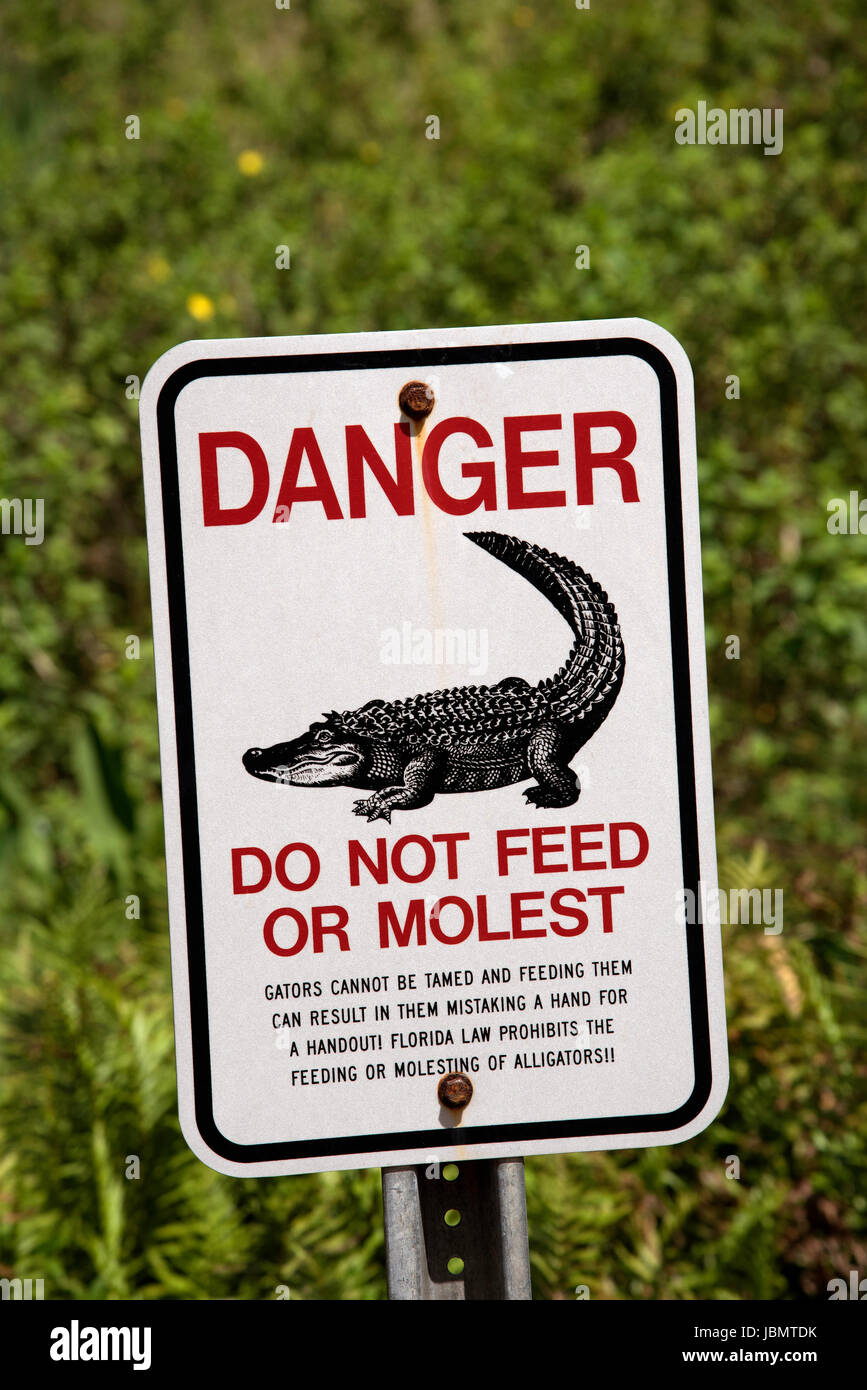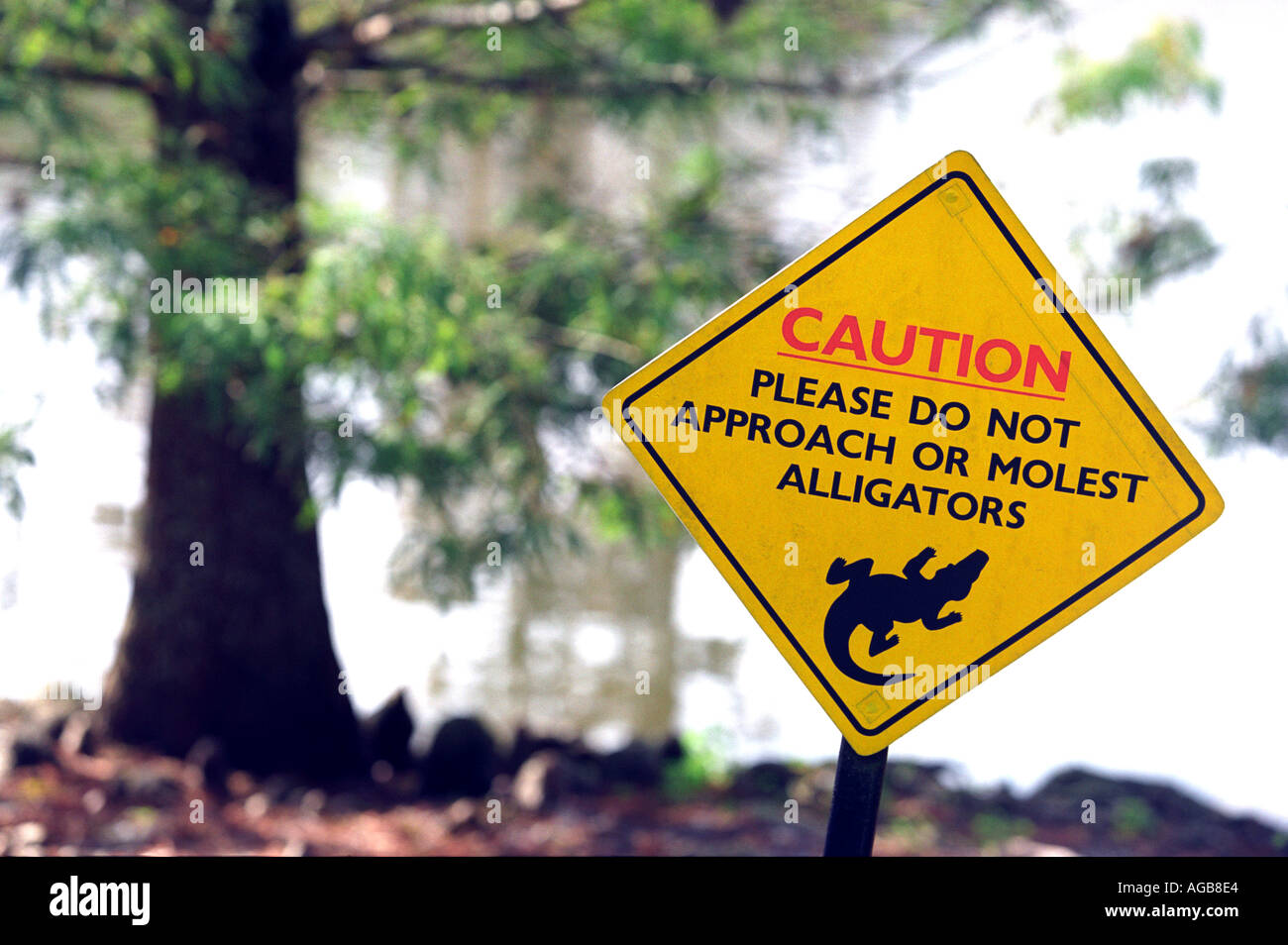Do Not Molest The Alligators: Understanding The Importance Of Wildlife Conservation
In today's world, the phrase "do not molest the alligators" might seem humorous at first glance, but it carries significant weight in the context of wildlife conservation. Alligators, as apex predators in their ecosystems, play a crucial role in maintaining the balance of their habitats. Therefore, understanding their behavior and the impact of human interactions is essential for both preservation efforts and public safety.
As urban expansion continues to encroach on natural habitats, the likelihood of encounters between humans and alligators increases. This article delves into the reasons behind the advice to avoid molesting alligators, the ecological significance of these reptiles, and what individuals can do to promote coexistence with wildlife. By fostering a deeper understanding of alligators and their role in the ecosystem, we can contribute to effective conservation strategies and ensure a safer environment for both humans and these fascinating creatures.
With the growing awareness of wildlife conservation, it is imperative to educate the public on how to interact responsibly with nature. This article will provide insights into alligator behavior, safety tips for encounters, and the importance of preserving their habitats. Let's explore the world of alligators and understand why we should respect their space and role in the ecosystem.
- Jack Wagner The Multifaceted Career Of A Television Icon
- Crocodile Dundee The Iconic Outback Adventure
Table of Contents
- Biology and Behavior of Alligators
- The Importance of Alligator Conservation
- Safety Tips for Encountering Alligators
- Common Misconceptions About Alligators
- The Habitat of Alligators
- Human Impact on Alligator Populations
- What to Avoid Around Alligators
- Conclusion
Biology and Behavior of Alligators
Alligators belong to the family Alligatoridae and are primarily found in freshwater environments like swamps, rivers, and lakes. Here’s a brief overview of their biological and behavioral characteristics:
| Attribute | Description |
|---|---|
| Species | American Alligator (Alligator mississippiensis) |
| Size | Average length of 11 to 15 feet; can grow larger |
| Weight | Typically between 500 to 1,000 pounds |
| Lifespan | Can live up to 65 years in the wild |
| Diet | Carnivorous; eats fish, birds, and small mammals |
Behavioral Traits
Alligators are known for their solitary nature and territorial behavior. Here are some key behavioral traits:
- Alligators are most active during dawn and dusk.
- They are cold-blooded and rely on external temperatures to regulate their body heat.
- Alligators communicate through a range of vocalizations, including hissing and growling.
- They use their powerful tails for swimming and defense.
The Importance of Alligator Conservation
Conserving alligators is crucial for several reasons:
- Prince Abdul Mateen The Charismatic Royal Of Brunei
- Kamala Montel Williams A Journey Through Life And Career
- Ecological balance: As apex predators, alligators help control populations of prey species, which maintains the balance of their habitat.
- Indicator species: The health of alligator populations can indicate the overall health of their ecosystems.
- Cultural significance: Alligators hold cultural importance in various regions, contributing to local heritage and tourism.
Safety Tips for Encountering Alligators
When in alligator habitats, safety should be a priority. Here are some essential tips:
- Keep a safe distance: Always observe alligators from afar, ideally more than 30 feet away.
- Do not feed alligators: Feeding them can lead to aggressive behavior and habituate them to humans.
- Stay calm: If you encounter an alligator, remain calm and back away slowly without sudden movements.
- Do not provoke: Avoid making loud noises or attempting to touch or interact with alligators.
Common Misconceptions About Alligators
Several misconceptions about alligators can lead to misunderstandings and unsafe situations. Here are some common myths:
- Alligators are aggressive to humans: While they can be dangerous, alligators typically avoid humans unless provoked.
- Alligators are the same as crocodiles: Although they are similar, alligators belong to a different family and have distinct characteristics.
- Alligators can run fast: Alligators can sprint short distances on land, but they are primarily adapted for swimming.
The Habitat of Alligators
Alligators thrive in a variety of aquatic habitats, including:
- Swamps
- Lakes
- Rivers
- Marshes
Conservation of these habitats is vital for their survival, as urban development and pollution pose significant threats.
Human Impact on Alligator Populations
Human activities have a profound impact on alligator populations, including:
- Habitat destruction due to urbanization and agriculture.
- Pollution affecting water quality and prey availability.
- Illegal hunting and poaching for their skin and meat.
Efforts must be made to mitigate these impacts through responsible practices and conservation initiatives.
What to Avoid Around Alligators
To ensure safety and promote coexistence, consider the following:
- Avoid swimming in waters known to have alligators.
- Never approach nesting sites or young alligators.
- Be cautious near water's edge, especially at dawn and dusk.
Conclusion
In conclusion, the phrase "do not molest the alligators" serves as a reminder of the importance of respecting wildlife and their habitats. By understanding alligator behavior, recognizing the significance of their role in the ecosystem, and adhering to safety guidelines, we can coexist peacefully with these magnificent creatures. Wildlife conservation is a shared responsibility, and through education and awareness, we can protect alligators and their environments for future generations. We encourage readers to share their thoughts in the comments, spread awareness, and explore more articles on wildlife conservation.
Thank you for exploring the world of alligators with us! We hope this article has provided valuable insights and encourages you to respect and protect our wildlife.
- Lisa Nowak A Comprehensive Overview Of Her Life And Career
- Nathan Fillion A Comprehensive Look At The Life And Career Of A Tv Icon

DO NOT MOLEST ALLIGATORS! Can you imagine someone trying t… Flickr

Aligator danger and warning sign Florida USA April 2017 Do not feed or

Molest hires stock photography and images Alamy